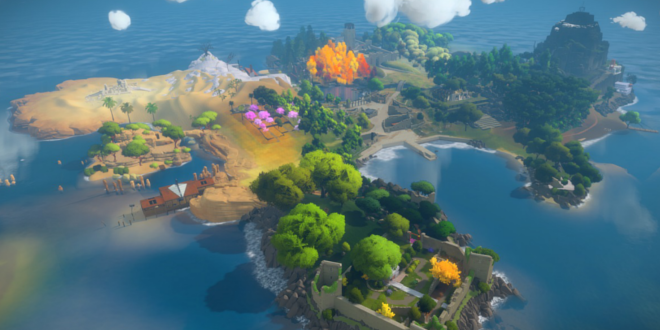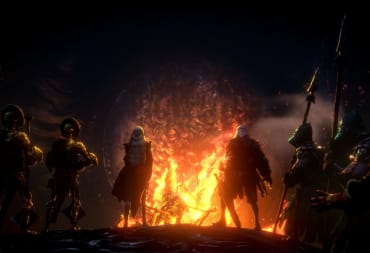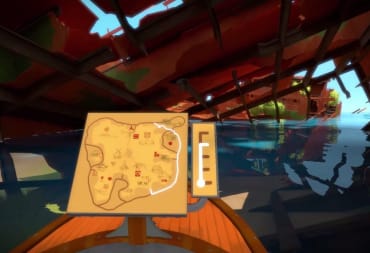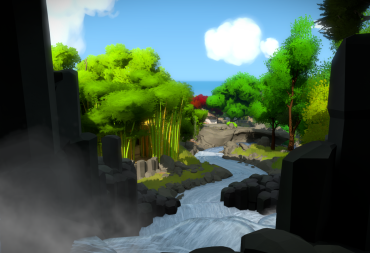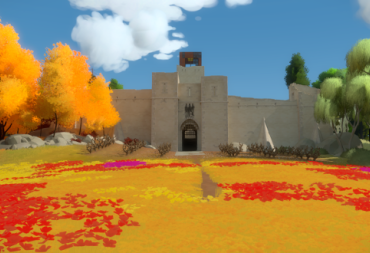Imagine a world where your perception on your surroundings is as important as the air you breathe. Where you must always think on your feet and look at things at an angle. A world of constant challenge and achievement met with a cold disregard to your accomplishments. This sums up The Witness in a nutshell.
For the past week, The Witness has been getting interesting praise and derision from the gaming community. It is not surprising, considering how “bare-boned” The Witness, the latest game from developer Jonathan Blow, seems on the surface. Of course, that is far from the truth. The Witness is a beautiful, well-crafted game, one that defines the world “auteur” in how it reflects the philosophies and ideas of its creator, sometimes to the chagrin of the player.
It would be easy to discuss the myriad of puzzles found in The Witness and write that off as good. With over 400 puzzles, and enough variety of types that involve logic, tracing, using sound and color or even just looking at shadows and glare the right way, The Witness is not afraid to challenge people without telling them what to do. It can’t even accommodate everyone either, those who are deaf, color blind or have depth perceptions problems will be unable to play the game as intended. Even those who suffer motion sickness or epilepsy will have trouble at times too. In true Dark Souls fashion, you are left to sink or swim on your own laurels in most cases, your own deficiencies become the biggest hurdle to jump.
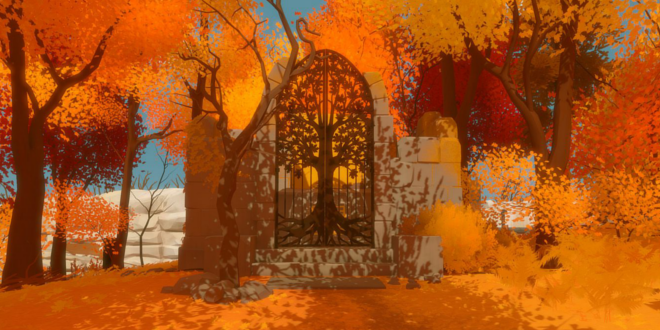
The diversity of the puzzles is perhaps the strongest asset to The Witness, but also the only asset of note. The world itself is beautiful for sure, the graphics are simple yet elegant, showing us a stitch in time, a world frozen by unknown means. What are the mysteries of this island, why are there statues scattered across the landscape? Who were the people living here, in this place of natural beauty, and man-made constructs?
In truth, those questions are not fully answered, even in one of the game's endings (yes, there is a hidden ending, good luck with that) but rather give us more questions to ask ourselves. This is the hook of The Witness, the player is unfolding the world piece by piece, a world that is paradise for the paragons of logic and reason, an intellectual wonderland. Even with scattered and well voice acted tape recorders reciting inspiring and famous quotes from scientists, poets, philosophers and authors throughout history, we see the seams, the seeping undertones of The Witness first hand. We see a world shaped by great men and women, a world Jonathan Blow wants to be in.
As I said, The Witness is an “auteur” game. Everything, from the shadows from the trees to the quotes selected and located around the island, they're all there for a reason. However, that reason is not our own. Perhaps Blow has put too much of himself into The Witness in that regard. It is a game that strives for intellectual perfection. You can solve puzzles quickly if you think like Blow, think logically and step back for a moment or two to reasonably figure out how to proceed. The Witness, and by extension, Blow, expects us to play the game by his rules in this way, a game where our curiosity and strive for achievement is our reward, and not the achievement itself.
Call it pretentious, because it frankly is, but in this way Blow succeeds in making this game not just a puzzle title. It is easy to dismiss The Witness outright for this pretension, but it is also the game’s only underlying theme. A world where intelligence is rewarded by personal gratification is one that will certainly appeal to those who want a challenge. Instead of flexing your sword arm with twitchy fingers, you must stretch your brain and find the correct path in a patterned grid. There really is no difference in that sense, outside of The Witness playing a bit fairer and being less obtuse than most puzzle-adventure titles. Myst comes to mind as a comparison, right down to the island motif and minimalist storytelling, but even Myst had moments of pure luck and uncertainty that The Witness doesn’t have.
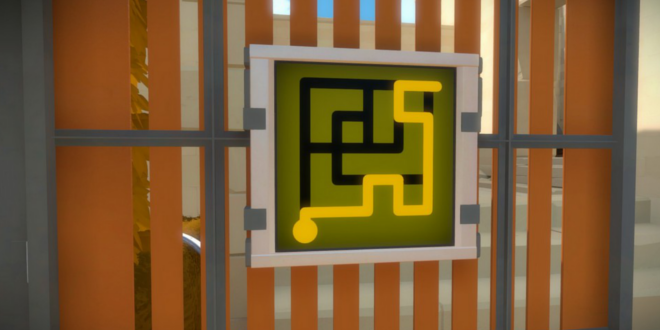
That doesn’t mean it’s perfect, however. Since the only way to achieve success is to follow the logic of Blow, some puzzles feel a bit overstuffed and overly difficult. In a few cases, there were multiple solutions present, but these were unusable because they weren’t the right solution. That is a failing with most logic puzzles and word games, the semantics become more important than the solution, a frustration that is not helped at all by The Witness’s uncaring veneer.
The world is a wonderland, but it is ambivalent to the player. Any strives for perfection, any reasons to continue tracing line after line, is all your own. Yes, there is a grander mystery to technically solve, but only your own curiosity will get you there; the world doesn’t care if you do, it is cold and empty in that way. A perfect juxtaposition to the lavish beauty and diverse island itself to be sure, but a fact nonetheless. You are alone here, and your only reward is what you make of it.
There is, of course, an underlying meaning to The Witness, a meaning that Blow has left up to interpretation, much like he did with Braid back in 2008. Perhaps we are meant as players to really embrace the logic behind the game, the thought experiment of figuring out these puzzles. Perhaps we are supposed to marvel at the beauty of the setting, and show our prowess by unlocking it, bit by bit with our wits. Maybe the point is that the world is a shell of itself, where intelligence is no longer respected or acknowledged, and our drive to be monotonous in our task is a sad truth in how we have been trained to ignore our surroundings. Maybe it’s simply just a puzzle game. For some, the simplest explanation is the best.
It is very too hard to really pin down The Witness in a way that quantifies it though. Not all the puzzles are sound, you need to try to get into the mind of the man who made it to get through it, and your reward is simply uncaring indifference to your accomplishments. It is a game not for everyone, that is for certain. Yet, the experience, the journey and personal achievement of figuring out the method to the madness, the burning desire to continue forward and challenge oneself and their own point of view, made The Witness one of the most enthralling experiences in a long time for me.
Perhaps, if you step back and view the game differently than what it is, it will do so for you too. It is, after all, a matter of perspective.
The game was purchased by the reviewer for the PlayStation 4 and played for over 20 hours to completion.
Review Summary
Thought provoking and challenging, The Witness is a game that really depends on the player's perspective to reach full enjoyment.
(Review Policy)Have a tip, or want to point out something we missed? Leave a Comment or e-mail us at tips@techraptor.net
